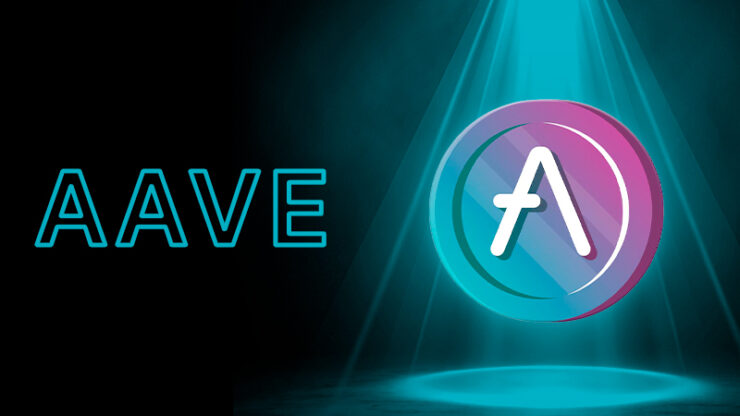The development of blockchain technology has brought us a new era of safe, decentralized finance. Yet, as the adoption of blockchain grows, so does the need for robust mechanisms to ensure its security and reliability.
Enter Actively Validated Services (AVS)—a game-changing framework designed to enhance blockchain integrity, protect against vulnerabilities, and ensure seamless operations.
But what exactly is AVS, and how does it secure blockchain ecosystems? Let’s explore in simple terms.
What Are Actively Validated Services (AVS)?
Actively Validated Services (AVS) are automated systems designed to monitor and verify blockchain operations in real time.
AVS acts as a watchdog, continuously validating transactions and ensuring all activities adhere to the predefined rules of a blockchain network.
This extra layer of monitoring ensures the security, transparency, and reliability that blockchain users demand.
Imagine AVS as an AI-powered supervisor standing guard over blockchain operations, catching errors and suspicious activity before they cause harm.
These services are specifically tailored to maintain the trustworthiness of the blockchain network, making them absolutely vital for secure operations.
Why Is Security Critical in Blockchain?
Blockchain technology is well-regarded for its inherent security due to decentralization and cryptographic protocols. However, common threats in blockchain networks include:
- 51% attacks: When a malicious actor gains control of the majority of the network’s computational power.
- Smart contract vulnerabilities: Bugs or flaws in the code that can be exploited for fraudulent activities.
- Data integrity risks: Errors or tampered data entering the blockchain.
Given these risks, robust validation services such as AVS are essential to ensure networks operate securely and effectively. AVS minimizes these threats by providing real-time security measures.
The Core Functions of Actively Validated Services
The implementation of AVS does more than just add a line of defense. Here are the core functions that make AVS indispensable for blockchain security:
- Real-Time Monitoring
AVS conducts continuous monitoring of all blockchain transactions, ensuring they align with established smart contract protocols.
- Fraud Detection
Through advanced algorithms, AVS identifies unusual patterns and flags any activity that could indicate potential fraud.
- Error Prevention
Errors in data entry or mismatched transactions can corrupt a blockchain, but AVS prevents these in real time.
- System Updates Validation
For blockchains undergoing updates or forks, AVS ensures new operational protocols adhere to security standards.
- Transparency Compliance
AVS helps maintain transparency across blockchain operations, a critical factor for trust within decentralized systems.
How AVS Enhances Blockchain Operations
With its automated validation processes, AVS ensures networks run smoothly by identifying and mitigating security breaches before they escalate. Here’s how AVS plays a pivotal role in streamlining blockchain operations:
- Improved Scalability: With AVS automating validations, networks can handle a growing number of transactions without human intervention.
- Strengthened Integrity: AVS ensures data entering the blockchain is accurate and trustworthy.
- Faster Dispute Resolution: Suspicious activities or errors flagged by AVS allow for quicker resolution, minimizing downtime.
- Lower Operational Costs: Automation reduces the need for manual oversight, cutting down operational costs for businesses employing blockchain.
Key Benefits of Using AVS for Blockchain Security
AVS transforms not just the way blockchains function but also how users and businesses perceive them. Key benefits of AVS include:
- Enhanced Trust: Users can operate confidently, knowing the system is self-validating and secure.
- Mitigation of Cyber Risks: By actively flagging vulnerabilities, AVS protects both user data and the blockchain network.
- Seamless Integration: Businesses can integrate AVS into existing blockchain infrastructures without major overhauls.
- Data Accuracy: By continuously validating transactions, AVS ensures the highest level of data integrity, improving the overall network quality.
AVS Applications Across Industries
The utility of Actively Validated Services extends beyond just securing operations. Major industries implementing blockchain technology can greatly benefit from AVS:
- Finance: Prevents fraud and ensures secure transactions in banking and cryptocurrency platforms.
- Healthcare: Provides secure management and validation for sensitive patient records.
- Supply Chain: Tracks goods efficiently while ensuring data on provenance and authenticity remains untampered.
- Gaming and Entertainment: Protects digital assets, NFTs, and in-game economies from exploitation.
- Real Estate: Ensures secure and accurate transaction records in decentralized property transactions.
Each of these industries relies heavily on data accuracy and security, both of which AVS delivers effectively.
Challenges and Future of AVS in Blockchain
While AVS offers groundbreaking solutions for blockchain operations, its implementation is not without challenges. Some of these include:
- Complex Integration: Setting up AVS may require specialized knowledge and resources.
- Scalability Concerns: For larger blockchain systems, handling vast amounts of data while maintaining performance can strain resources.
- Cost of Deployment: Building and maintaining AVS frameworks might involve significant upfront costs for smaller businesses.
Despite these challenges, the future of AVS remains promising. As AI and machine learning technologies evolve, so too will AVS, providing faster, smarter, and even more cost-effective validation systems.
How to Implement AVS in Your Blockchain Strategy
If you’re considering integrating AVS into your blockchain strategy, here are a few steps to get started:
- Assess Your Needs: Identify the specific security and operational challenges in your blockchain network.
- Choose the Right Provider: Research AVS platforms that align with your business goals.
- Test Before Full Implementation: Deploy AVS on a smaller scale to evaluate its performance and adaptability.
- Train Your Team: Ensure staff is familiar with the role and functions of AVS within your network.
- Continuous Review: Stay vigilant by monitoring AVS performance and adjusting protocols as needed.
Conclusion
Actively Validated Services (AVS) are revolutionizing blockchain operations by providing much-needed security, transparency, and efficiency. From enhancing data integrity to reducing operational costs, the benefits of AVS make it an essential addition to any blockchain network. However, like any technology, a thoughtful and planned approach to its integration is vital.
Secure your blockchain network today by exploring how AVS can transform your operations. Stay ahead of the curve with this cutting-edge technology, and enjoy a seamless, secure blockchain experience.





